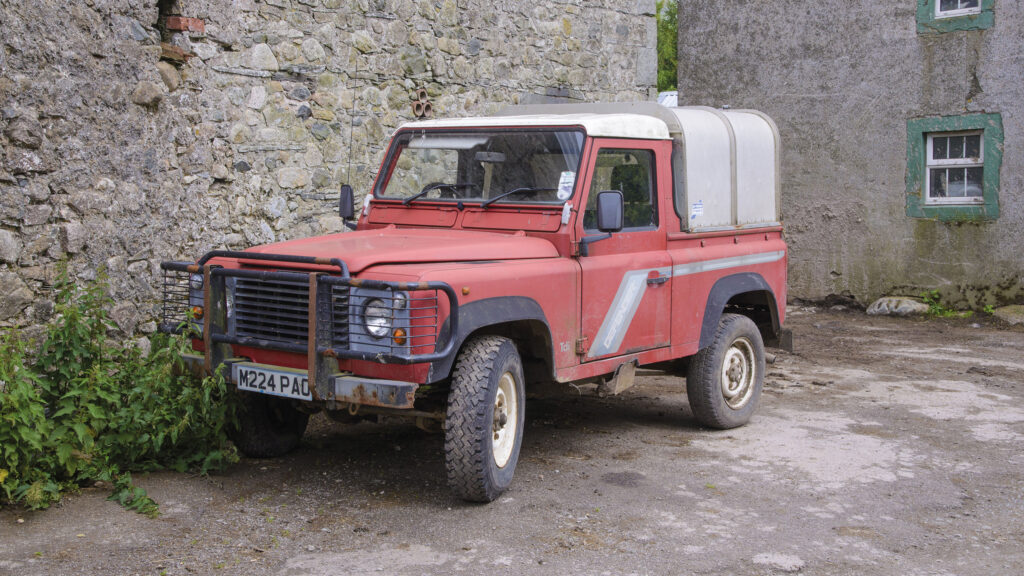Business Clinic: How to reclaim VAT on private and business use
 © FLPA/Alamy Stock Photo
© FLPA/Alamy Stock Photo Whether it’s a legal, tax, insurance, management or land issue, Farmers Weekly’s Business Clinic experts can help.
Here, Kate Bell, a partner with accountant Albert Goodman, explains how to approach allocation of private and business uses when reclaiming VAT.
See also: Business Clinic: advice on changing accountants
Q: I am taking on the preparation of the partnership VAT return from my mother-in-law and I want to be clear on the private use adjustments I should be doing for us to be compliant with HMRC in relation to the farmhouse and vehicles.
Can you give us some guidance please.
A: There are several key areas of adjustment to consider.
Farmhouse – how much VAT can be reclaimed?
HMRC recognises that a farmhouse is not just a family home but an essential part of a farming business.
Farmers must be on-site and available at all times to manage livestock, protect property, and meet contractors, suppliers, or advisers, often around the kitchen table.
Because of this dual use, farmers can usually reclaim part of the VAT on farmhouse expenses.
Repairs and maintenance
Where the farmhouse is a typical working farmhouse, the farming activity is full time, and the costs relate to repairs and maintenance, HMRC’s published policy is that it will normally allow 70% of the VAT on these costs to be reclaimed as input tax.
Extensions and alterations
If the work involves extensions or improvements rather than maintenance, a fair and reasonable apportionment must be made to reflect business use.
HMRC suggests it is unlikely that more than 40% of the expenditure would be attributable to business use. For example, it would be hard to say that adding rooms for family members is business related.
It can be difficult to decide what proportion of VAT to reclaim. While using a floor-area calculation (comparing the business space to the total property) is one option, tribunals have generally preferred the “dominant purpose” approach for major works, relating to whether the reason for the expenditure is mainly for business or personal purposes.
The appropriate adjustment will very much depend on the specific facts.
Utilities and shared costs
Utilities and other mixed-use expenses should be apportioned fairly and reasonably between business and private use.
HMRC says appointments should be kept simple and it should not put a substantial burden on the business to keep records. It is important that you can, if necessary, demonstrate the method you use is fair.
Examples include:
- Using floor area for electricity or heating costs
- Reviewing phone bills over a sample period to separate business and personal calls. Apportionments should be reviewed regularly to ensure they remain fair.
HMRC’s focus on private use adjustments
HMRC is placing greater emphasis on private use adjustments for income tax. While this focus mainly affects income tax, it highlights the importance of making accurate and well-evidenced VAT claims.
HMRC is expected to open more enquiries to check that business expenses are being apportioned correctly.
Vehicles and fuel costs
Motor expenses are another key area for private use considerations. The rules differ between cars and commercial vehicles:
- Repairs and maintenance: VAT on repairs for business vehicles can be reclaimed in full, even with some private use. No VAT can be reclaimed if a vehicle is used only privately.
- Fuel: For commercial vehicles with more than trivial private use, a VAT restriction is needed, often based on mileage records.
For fuel for cars, three main options exist:
- Reclaim VAT on all fuel and pay a fixed scale charge for private use.
- Keep mileage logs and reclaim VAT only on business journeys.
- Opt out of reclaiming VAT on road fuel.
If the scale charge method is used, it must apply to all cars where fuel is available for private use. The “no claim” option must be applied to all road fuel purchases – not just cars.
Vehicle purchases – VAT can usually be reclaimed on commercial vehicles, with adjustment for private use when more than trivial.
For cars, if they are available for private use (as in most partnerships), no VAT can be reclaimed. Leased vehicles follow more complex rules.
The appropriate method depends on the type of vehicle and level of private use.
Other common VAT points
- Vet bills: VAT on pets’ care cannot be reclaimed; only costs for farm animals qualify.
- Customer entertainment: VAT on hospitality, such as meals, theatre or sports tickets, cannot be reclaimed.
- Employee entertainment: VAT incurred on staff parties, team building exercises, staff outings and similar events may be reclaimed if it is not only partners or directors – must include employees.
- Business meetings: If a normal, basic, breakfast or lunch is provided during a meeting enabling the meeting to continue without interruption then VAT should be reclaimable.
Clear evidence of business use and regular reviews will help ensure VAT recovery remains accurate and defendable during any HMRC check.
Do you have a question for the panel? Outline your legal, tax, finance, insurance or farm management question in no more than 350 words and Farmers Weekly will put it to a member of the panel. Please give as much information as possible. Email your question to FW-Businessclinic@markallengroup.com using the subject line “Business Clinic”.
